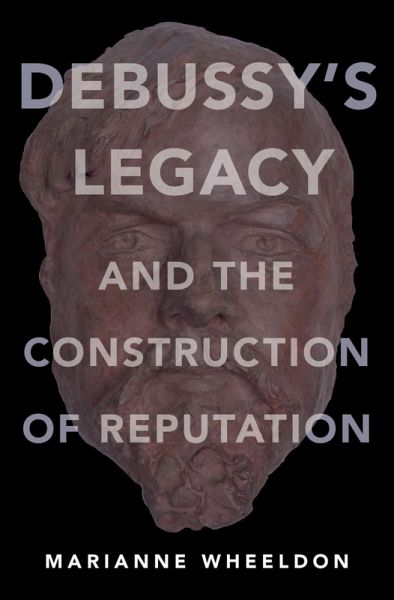
Debussy's Legacy and the Construction of Reputation (eBook, ePUB)

PAYBACK Punkte
10 °P sammeln!
Today, Claude Debussy's position as a central figure in twentieth-century concert music is secure, and scholarship has long taken for granted the enduring musical and aesthetic contributions of his compositions. Yet this was not always the case. Unknown to many concert-goers and music scholars is the fact that for years after his death, Debussy's musical aesthetic was perceived as outmoded, decadent, and even harmful for French music. In Debussy's Legacy and the Construction of Reputation, Marianne Wheeldon examines the vicissitudes of the composer's posthumous reception in the 1920s and 30s, ...
Today, Claude Debussy's position as a central figure in twentieth-century concert music is secure, and scholarship has long taken for granted the enduring musical and aesthetic contributions of his compositions. Yet this was not always the case. Unknown to many concert-goers and music scholars is the fact that for years after his death, Debussy's musical aesthetic was perceived as outmoded, decadent, and even harmful for French music. In Debussy's Legacy and the Construction of Reputation, Marianne Wheeldon examines the vicissitudes of the composer's posthumous reception in the 1920s and 30s, and analyzes the confluence of factors that helped to overturn the initial backlash against his music. Rather than viewing Debussy's artistic greatness as the cause of his enduring legacy, she considers it instead as an effect, tracing the manifold processes that shaped how his music was received and how its aesthetic worth was consolidated. Speaking to readers both within and beyond the domain of French music and culture, Debussy's Legacy and the Construction of Reputation enters into dialogue with research in the sociology of reputation and commemoration, examining the collective nature of the processes of artistic consecration. By analyzing the cultural forces that came to bear on the formation of Debussy's legacy, Wheeldon contributes to a greater understanding of the inter-war period--the cultural politics, debates, and issues that confronted musicians in 1920s and 30s Paris--and offers a musicological perspective on the subject of reputation building, to date underrepresented in recent writings on reputation and commemoration in the humanities. Debussy's Legacy and the Construction of Reputation is an important new study, groundbreaking in its methodology and in its approach to musical influence and cultural consecration.
Dieser Download kann aus rechtlichen Gründen nur mit Rechnungsadresse in A, B, BG, CY, CZ, D, DK, EW, E, FIN, F, GR, HR, H, IRL, I, LT, L, LR, M, NL, PL, P, R, S, SLO, SK ausgeliefert werden.













